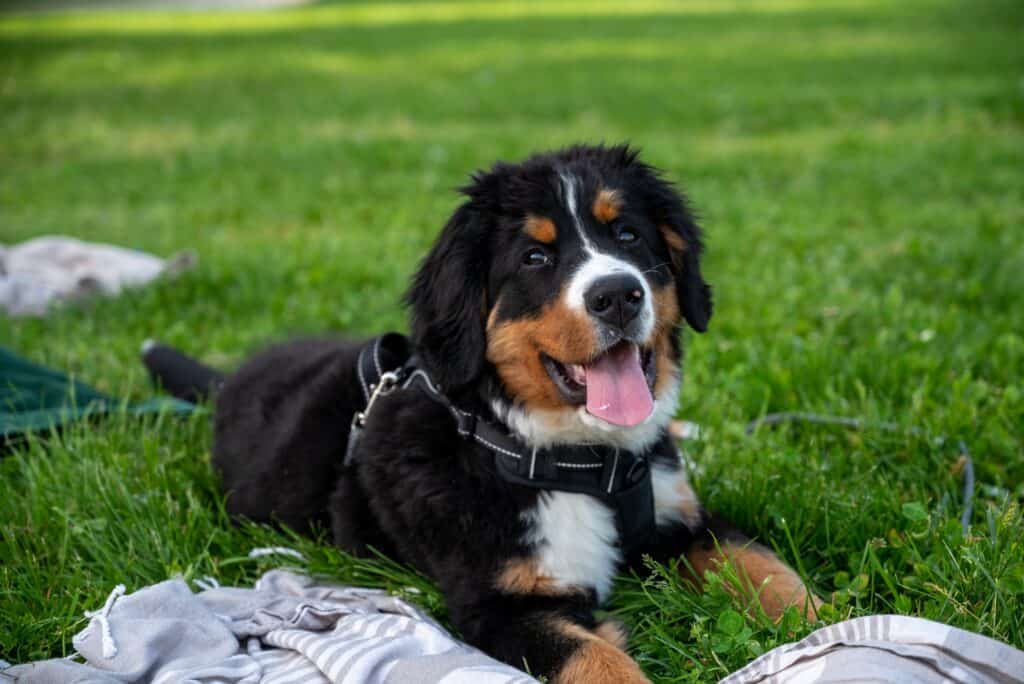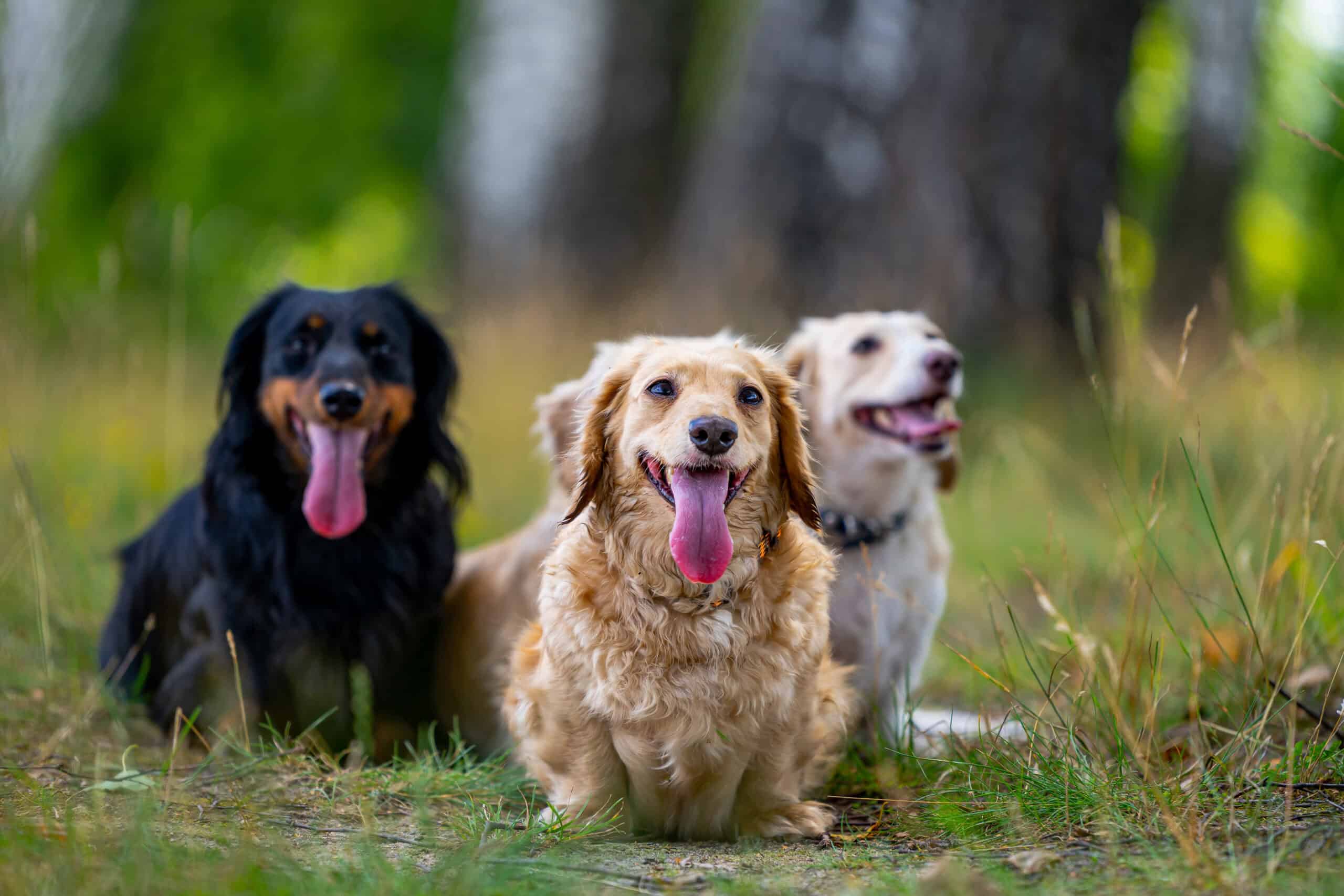Making the decision to get a new dog can be wonderful and life-changing. Dogs can provide friendship, support, an exercise companion, a sporting teammate, or a working partner. Choosing the right dog can improve your (and your family’s) quality of life by bringing joy, companionship and unconditional social support. Choosing the wrong dog, however, can have disastrous consequences for the dog and all of their human family members.
If you have found this article, you are in the right place. With all of the information available online, it can be difficult to know where to begin when attempting to select the right dog. This article will outline exactly what you need to do in order to choose the right dog for your home.
How to choose the right dog
1. Consider your environment
One of the most important considerations when deciding which type of dog to get is to consider your living situation and potential space restrictions. Do you live in an apartment or detached house? If your dog will be spending a lot of time within your home, how large is your house? Do you live in an urban or rural setting, and how large is your yard? If you have a large yard, is it fenced so your dog will be able to run freely unattended?
If you live in an apartment, or small house in a crowded area of the city, it is worth considering a small to medium-sized breed. Although some large dog breeds can do well without significant space requirements, they take up more room in general, which can make the house seem more crowded. If you live in the city, consider the amount of background noise which your dog will hear everyday. Some dogs, such as Border Collies, are bred to control movement and can be incredibly environmentally aware. Noisy and unpredictable environments can be very stressful for them.
Other breeds, such as guardian livestock dogs, are bred to live outside to protect livestock and property. Living in an environment where things are constantly coming and going, and there is always something going on immediately outside your home, can put natural instincts into overdrive and create significant behavioral issues. If you live rurally and intend to leave your dog outside roaming for most of the day, it would likely not be practical to choose a toy breed bred for companionship, who will have very few natural defenses against predators.
2. Consider your situation
It is also extremely important to consider your own circumstances and the type of dog who will thrive within that lifestyle. Do you have small children? Do you have older children who depend on you to take them to and from extracurricular activities? Do you have cats, other small animals or livestock? How much energy do you have to put up with your dog? How many hours per day do you work, do you work inside or outside of the home, and what are your plans for the dog while you are working?
It is crucial to ask yourself these questions and be realistic about the answers. If you have small children with a lot of energy, it would not be advisable to select any type of herding breed or breed with high prey drive; sensitive breeds with low tolerance levels; or very strong, highly energetic breeds who could unintentionally hurt your children during play. Certain dog breeds are traditionally good family companions, and some dog breeds absolutely thrive around children. For the safety of your family, focus on finding a breed which does well with children.
If you work a full-time job outside of the home, you should avoid any breed with high energy and training requirements, or high socialization requirements during puppyhood and adolescence. You may also consider avoiding breeds who require significant amounts of attention, as they can be prone to issues such as separation anxiety, fanatical behavior upon the return of their owner, and loneliness. Full-time employees who work outside of the home, business owners with long hours, or people with demanding jobs should search for a low to moderate energy breed that is independent enough to not become highly stressed by their time alone.
If you are a stay at home parent, retired, or will otherwise spend most of your time with the dog, you will want to consider a breed with low to moderate energy levels who thrives off of socialization and human interaction.

3. Consider your goals (and be honest with yourself)
If you are a highly active person who loves to spend time outdoors, a dog sport enthusiast, or someone who needs a working dog for SAR or detection work, you will likely want to search for a high energy dog who is engaged enough with their handler to be teachable and focused, yet independent enough to be successful at their discipline. If you are looking for a dog who will mostly be a pet, you will want to select a social dog with low to medium energy requirements (depending on how much exercise you can provide during the day), who enjoys human interaction and is more handler-oriented than independent. If you plan to do a lot of elaborate training with your dog, you will likely want a very handler-oriented and motivated dog who enjoys high levels of mental stimulation.
It is important to be very honest about the goals you will have for a future dog. If you know exactly what you are looking for, you can communicate this to a breeder or shelter, and they can assist in selecting the best dog to help you reach these goals.
4. Consider your experience
If you are a new dog owner, it is crucial to start with a dog who will not be difficult and overwhelming. Some dog breeds are prone to intense mouthing, biting, or chasing moving objects and animals. Some require significant amounts of early training and socialization in order to avoid becoming aggressive towards novel people or animals. Search for a good starter breed, who is not particularly sensitive and does not require significant amounts of work when young to be environmentally sound. Searching for a dog with a naturally good temperament can make working with them much more enjoyable, and selecting a more handler-oriented breed can make training significantly easier. You may also want to consider if purchasing a puppy or adopting an adult dog would be a more appropriate option.
If you are an experienced dog owner, you likely know which attributes you like and which you would prefer not to deal with. If you decide to obtain a breed which is completely different from dogs you have owned or worked with in the past, it is always useful to do a lot of research beforehand to ensure that you are prepared.
5. Do your research
There are nearly 400 dog breeds recognized by various organizations throughout the world, with the AKC recognizing over 200 breeds. There are also mixed breed combinations which can demonstrate any number of traits from their lineage. Within many breeds, there are show, pet and working lines, each of which tends to demonstrate different intensities in traits.
With all of these options, conducting very thorough research prior to selecting a dog is beneficial. Once you have narrowed your choices down, it can be useful to speak to others who are experienced with owning those particular breeds. Many breed specific groups exist on social media and you may want to consider joining some of these groups before making a decision.
Once you have selected a breed – provided you do not intend to rescue – it is time to do as much research as possible on breeders. Genetics can make a significant difference regarding how healthy and environmentally stable your dog will be. Ask as many questions as possible, look at the associated OFAs and health testing for both parents, ask about any breed-specific genetically predisposed diseases, and speak to others who have already purchased puppies from them.
If you plan to adopt, speak with the shelter ahead of time and tell them exactly what you are looking for. Shelters can be overwhelmed with animals needing homes, so do not automatically assume that they will refer you to options which are exactly what you are looking for. If you can, spend as much time as possible with prospective dogs, and consider a foster-to-adopt option so you can give yourself the best chance of knowing exactly what to expect prior to adoption.
A final word of caution…
There is a well-rehearsed adage within the dog training community which states, “Get the dog you need – not the one you want.” It can be tempting to select a breed based on appearance, because they are popular, or because they seem fantastic on TV – but oftentimes decisions based on trivial factors result in frustration and overwhelming amounts of stress.
Choosing a dog who is poorly suited to your situation and lifestyle can lead owners to spend thousands of dollars on behavioral modification attempting to change behaviors which are perfectly normal in that breed. If you are looking for a pet or companion, selecting a high-drive working dog and expecting it to be content with daily on-leash walks is setting you and the dog up for failure. Behavioral concerns such as reactivity, aggression, impulsive or destructive behavior are very common in high-energy dog breeds whose physical and psychological enrichment needs are not being met. Many people inspirationally delve into the world of high-drive, high-energy dogs with the intention of getting involved in dog sports, using the dog as an excuse to be more physically active, or by convincing themselves that they can meet their dog’s needs.
In most cases, however, people quickly realize how big a commitment these activities are, and their enthusiasm wanes. Life gets busy, children’s summer break or after school activities take up a lot of time, work is demanding, and any other number of obstacles can get in the way of persevering with initial intentions. Your dog, however, continues to require the same amount of dedication that you had anticipated providing them in the beginning. This situation occurs often, and the outcome can be stressful for everyone involved.
Selecting the right dog starts with evaluating your life right now. Do not expect that bringing a dog into your home will be the magic solution to beginning a lifelong exercise regimen if you do not already have one. Don’t expect that a dog will provide you with a fun dog sport hobby if you do not have some involvement in them. Don’t purchase a dog to enhance your social image if you are not already the person who you want to become.
Choose a dog because they will enhance your life, and because you will enhance theirs.

